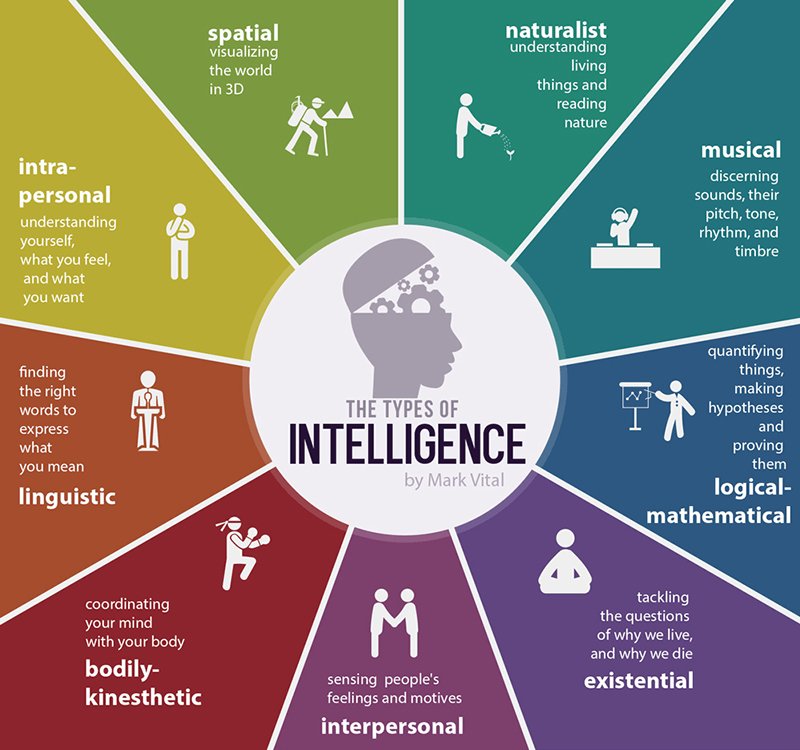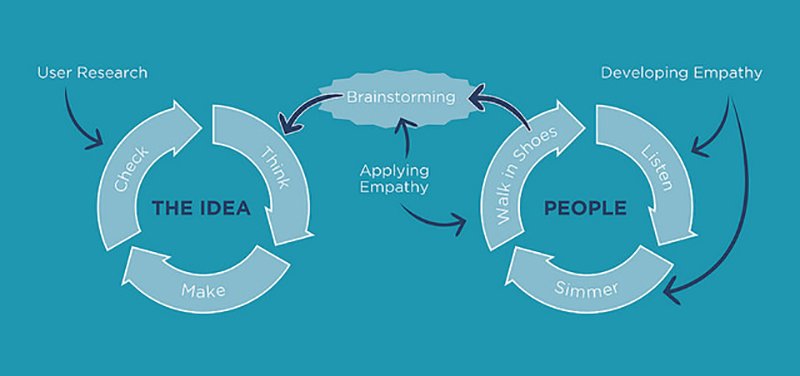When seeking to bring about personal growth and accomplishment, it's essential to shift our perspective from fixating solely on desired outcomes to embracing the transformative power of identity. Rather than asking ourselves what we wish to achieve, we should redirect our focus to consider who embodies the qualities and attributes required to attain those goals. This shift in mindset allows us to delve into the core essence of success: becoming the very type of individual who naturally thrives in the desired arena.
No more straight lines
The changes we see in the global landscape is changing the way our clients do business, causing the reimagination of whole industries, increasing customer expectations and behaviours, and creating a whole lot of uncertainty. I think what we do in sales is help people and companies change, we change the products and services they use, we change the way they use these products and services. And when we perform at our very best, we help our clients and the people we serve to transform their businesses and their results. This change process is non-linear because any process that includes human beings, especially in groups is non-linear. This means that the process is very rarely a straight line, and very often a process that doubles back over ground it has already covered - stops, starts again and then picks up in an unexpected place or direction again. Are your sales processes designed and written in a linear form? Contact me via e-mail for an overview of your organisations sales processes.
Awareness always makes a positive change
There is a difference between busy and being productive. Being productive is really about narrowing your focus, it’s about prioritisation and it means you carefully select what’s most important, and eliminating things that are not so important. I think you should invest your time and energy in things where it’s going to make a difference to your goals and outcomes. A successful day is a day where you make massive progress on the things that matter for you. There are only two major things that make you productive in sales, one is opportunity creation and, and the other is opportunity capture.
Contact me via e-mail when you are ready to look at your teams sales engagement, as it’s only when they have the awareness to recognise opportunities and challenges will they begin to nurture healthier relationships with others.
Just be good
The concept of a "good life" includes a sense of responsibility towards others, and achieving a fulfilling and positive life comes with an obligation to assist and support others in their pursuit of similar well-being. This viewpoint aligns with principles of empathy, compassion, and social responsibility. I think it’s imperative that we exclusively collaborate with individuals who empower us to excel in our endeavours. This approach stems from a commitment to authenticity, enabling us to consistently deliver a profound sense of service that serves as the foundation for all our endeavours. Central to this principle is the incorporation of our unique perspective, voice, and worldview – a lens through which we perceive the world. This holistic integration, I believe, is what truly strikes a chord with others and establishes a resonant connection.
Stay positive and try
““The price tag for having a good life is a responsibility to help others get there too.””
Open your eyes and look within. Are you satisfied; with the life you’re living?
*S* top
*T* elling yourself
*A* ll the
*R* easons not to
*T* ry.
A brand is not a logo
Your brand is not your logo, I think your brand is the sum total of how your business is perceived, experienced, and valued by your customers. In other words, your brand is the alignment between you and your customer.It's the emotional and practical connection that forms between your business and its audience, ultimately influencing buying decisions and fostering a sense of loyalty and trust. It’s important that you have total clarity on what you do, who you do it for and why it matters before you start your brand.
It's a balancing act
Are you aware that your knowledge is a valuable asset?
I think your skills and abilities play a significant role in how you deliver your product or service and will contribute to the quality of your offering. Whether it's your craftsmanship, problem-solving skills, communication abilities, or technical expertise. This knowledge guides your decisions, helps you make informed choices, and enables you to stay competitive and relevant. Industry expertise, understanding of customer needs, and your insights into market trends are also valuable assets. All of these attributes contribute to the overall customer experience and differentiate you from competitors. Contact me via e-mail to book a confidential 1:1 sparring session.
A multifaceted journey
Starting a business begins with a marketable skill, idea, or product. This is the foundation upon which your entire venture will be built. It could be a service you excel at, a unique product you've developed, or an innovative idea that addresses a specific need or problem in the market. I think the essence of any successful business is the ability to create value for your target audience. This value can come in various forms, for example, solving a problem, making their lives easier, providing entertainment, offering convenience, etc. When your offering resonates with your target audience, they are more likely to be willing to pay for it. Do you have a business idea? Contact me via e-mail to book a confidential 1:1 sparring session.
Wider performance marketing
To improve the impact of digital marketing and undo the damage caused by using inadequate metrics, we must find a high-margin, transactional product to sell and market. Currently, a major issue with e-mail marketing is the optimisation around transactional metrics rather than emotional metrics. It's essential to exercise caution in this aspect and shift our focus towards emotional engagement for more effective results. I think one should find an high margin, transactional product to sell and market, and then use good metrics to optimise its performance.
The devil is in the details
I’m the chef who cooks the meat but doesn’t eat the meat as I’m a pescatarian. When we watch the same film or attending a concert simultaneously, we are not seeing the same film because the parts that we don’t see and have to perceive about the characters is all different. Everybody is seeing a different movie even when we are watching the same movie, so we cannot be caught up in the outcome.
Providing valuable insights
As a subject matter expert, you possess the confidence to engage with any stakeholder, whether it's the CEO, CMO, or end-users of your product. Your expertise shields you from being outflanked in conversations with anyone, making you a trusted authority in your field. When discussing market trends and implications, your goal is to articulate the necessity for change and how it should be approached, however, merely presenting trends and potential impacts may not be enough to drive action. To inspire change, you must emphasise the critical need to act promptly, driving your clients and team members to embrace innovative solutions that can lead to success in the evolving landscape. And by conveying the urgency of the situation, you motivate people to consider and adopt alternative approaches instead of sticking to their previous practices. Are you interested in guidance for navigating market challenges? Contact me via e-mail for a 1:1 meeting or workshop for your team.
Prioritise and sharing
I think that if you want to be an effective consultant it's essential to prioritise what's most important over what's merely relevant. Your role is to provide valuable advice and recommendations to your clients, guiding them towards the results they desire, as without fulfilling this consultative duty, you risk becoming irrelevant in their eyes. To become a successful consultant your approach should involve breaking down complex information into manageable parts – facts and impacts. Your ability to understand the overarching trends in the world, and then assess their implications for your clients, giving them a clearer picture of how these trends will affect their businesses. This foundational knowledge will serve as a basis for crafting well-informed and actionable recommendations for your clients, and this will also position yourself as a trusted advisor
Become a trusted advisor
Imagine walking into a room and confidently sharing your keen observations about the current market trends. You outline the potential implications for companies and individuals who resist change. These insights are backed by your values and beliefs about the market's direction, and you find yourself at the intersection between your expertise and your clients' businesses.
You boldly present your recommendations, explaining that you stand firmly behind them. Your thoughtfulness and reflection have given you the ability to anticipate your clients' needs even before they are aware of them. This foresight establishes you as a trusted advisor in their eyes. By combining your unique perspective on the market with a deep understanding of your clients' challenges and aspirations, you can guide them towards success. As a result, you build strong and lasting relationships, cementing your reputation as a reliable and valued partner in their business endeavours. Contact me via e-mail for a 1:1 meeting.
Dear marketing leaders
You have often heard the advice to "build your brand" and "tell your story.” What if your customers simply don't care? The truth is, what truly matters to them is themselves – their problems, their needs, and their aspirations. In reality, they aren't as invested in your brand or your story as you might think. So, instead of solely focusing on pushing your brand and narrative, it's essential to shift your approach. How? By understanding your customers' perspectives and catering to their specific needs and concerns is crucial. By empathising with their challenges and offering solutions that genuinely resonate with them, you can create meaningful connections and foster brand loyalty.
At the end of the day, I think successful marketing is about putting the customer first, addressing their pain points, and demonstrating how your product or service can improve their lives. So it makes sense to redirect your marketing effort towards delivering real value to customers and building lasting relationships based on trust and understanding.
The habit of gratitude
The more you educate yourself the more you understand where things come from, the more obvious things become, and you begin to see lies and deception everywhere. I think seeking and embracing the truth is essential for finding freedom. Developing a habit of gratitude, intentionally looking for and feeling grateful for life and the abundance around us. Staying in a state of gratitude and joy, is the best habit we can develop because in joy there is no room for worry.
Taking back your power
I think that if you want to achieve anything in this world you have to get used to the fact that everyone is not going to like you. And if you want everyone to like you then this would be inconsistent with making any significant impact. Therefore, I made a deal with myself a long time ago that if people didn’t like me because they disagreed with me then I was OK with that, and if a person didn’t like me because they were intimidated by something I said, then I was also OK with that. On the other hand, if someone I respected didn’t like me then I would have a problem, and I would definitely have to take accountability for that and admit that I am doing something wrong.
Expand your mind (Pt-2)
Expand your mind (Pt.)
I'm not particularly keen on discussions about strengths and weaknesses without considering the context. Instead of viewing ourselves in terms of strengths and weaknesses, I think it's more accurate to see our traits and attributes as unique characteristics. In the appropriate circumstances, these qualities can transform into strengths, while in unsuitable environments, they might appear as weaknesses. It's crucial to understand our true selves and seek environments where our specific traits can be utilised to our advantage.
““Don’t ask people how clever they are, instead ask them how are they clever.””
First impressions
Image c/o Inc. Magazine
How can I make a great first impression?
Making a great first impression is crucial in both personal and professional settings. A professor from Howard University once told me that I made a great first impression because I showed trust and respect. I was raised to show empathy and authority, so I believe that we are saying exactly the same thing. One can definitely build upon these traits to improve one’s ability to make a positive first impression, for example, by smiling and maintaining eye contact or by using positive body language.
““You never get a second chance to make a first impression.””
Clarify the purpose
Image c/o Indi Young’s book “Practical Empathy”
I was born with practical empathy, the ability to see people for who they are and what they really want. I’m always trying to understand:
• Why are things the way they are?
• What are people looking for?
• Why is this layout the way it is?
• If it is not working on me, why is it working on other people?





















